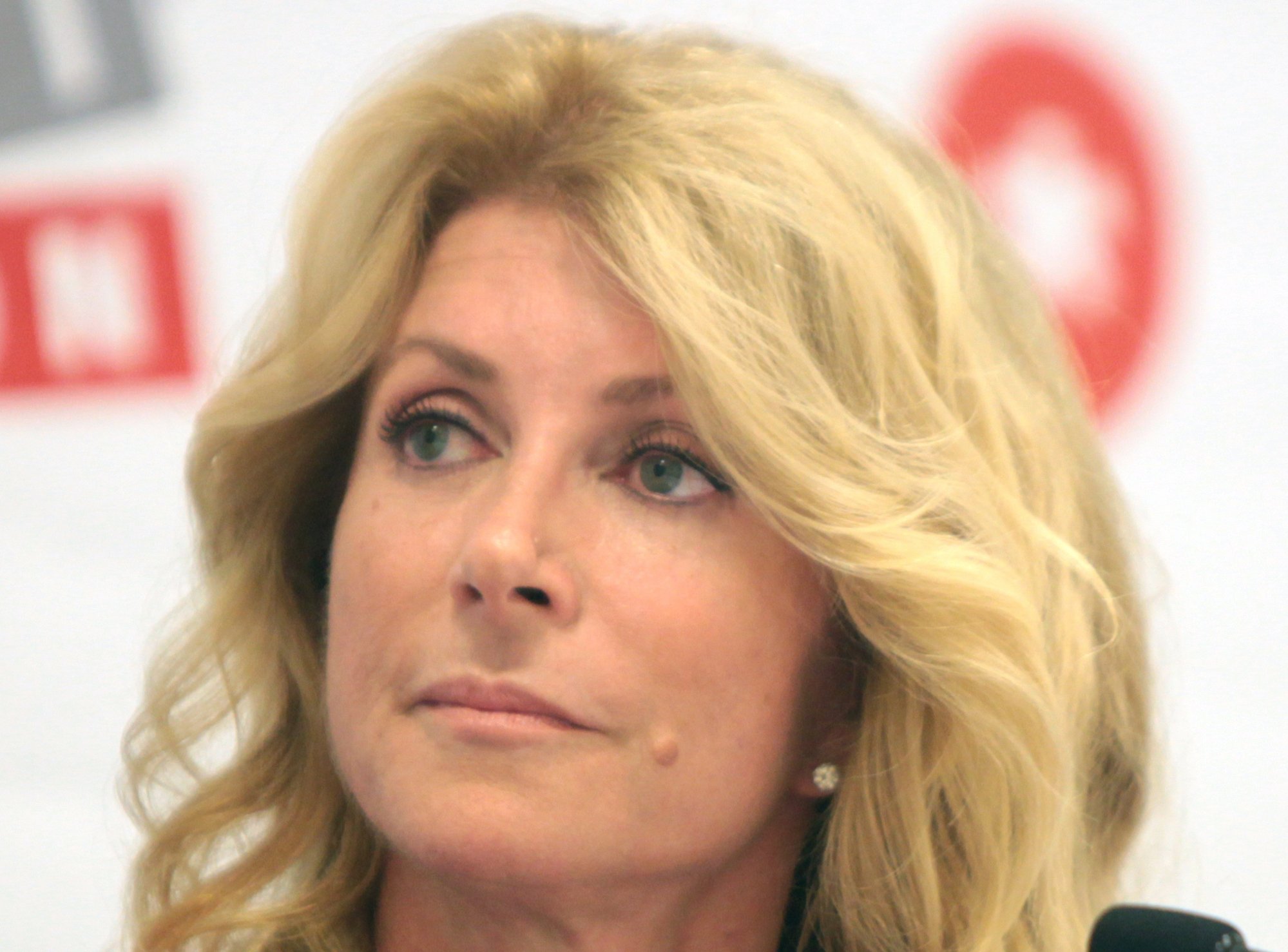Former Texas state senator Wendy Davis first gained national attention in 2013 when she filibustered a bill restricting access to women’s health care for 13 hours – without eating, drinking water or sitting down. Davis has been a women’s rights advocate throughout her political career, as well as a champion of several progressive causes in Texas. This Monday, Davis addressed a packed Cemex Auditorium during a panel discussion on women in politics hosted by the Women’s Coalition. The Stanford Daily sat down with her to discuss politics and resilience in the face of defeat.

The Stanford Daily (TSD): You overcame quite a bit of adversity in your early life, including supporting a child while you were still a teenager and financial struggles. At what point did you first start thinking that you could become a politician, and how has this influenced your political career?
Wendy Davis (WD): I didn’t become a politician because I thought I would be or ever dreamed to be one. I became interested in politics in my early 30s. I went to a city council meeting to articulate a concern that I had. And just going to that meeting, and seeing and understanding the process, intrigued me. And I began thinking about possibly running for office, believing that it would be a really great way to serve the community and to do something of value.
I think the important thing, though, is that you don’t have to be someone who always saw yourself as a person who would run for office to suddenly find yourself moving in that direction. And really I think a lot of people, especially women, find themselves there because they’re following something that they’re passionate about, and they’ve realized that that’s the place to be effective in getting something done about it. Women want the job; a lot of men want the title.
TSD: Do you remember when you first thought that running for office was something you could do?
WD: I did it without a whole lot of thought ahead of time. I did it rather impulsively. A seat unexpectedly opened up on the city council, because our mayor stepped down to run for Congress, and our councilperson decided that he was going to run for mayor. And so I just decided to do it. I just pulled the trigger and did it. And I lost. That’s the important thing to know. I lost the first time I ran, by 90 votes in a runoff election, and I thought I was going to die. And then I came back and I ran again three years later, and I won.
TSD: Lots of students who want to push women’s issues are from California or other states where their representatives are already “on their side.” How can these people still be politically engaged and active in a meaningful way?
WD: Sometimes our role [when] we have friendly representatives is to help inspire their ideas. No representative is going to come up with the ideas that other people would help to plant in their minds. For example, in my state I became very active in working on the backlog of rape kits and getting the funding to test those. But I would never have known that that was a problem if a constituent hadn’t come and talked to me about it. So we all have a way of influencing progress in the political conversation simply by bringing our ideas forward. And how wonderful it is to be in a state where you can work with people who you know are going to listen to you support the ideas you bring to them. And certainly don’t forget to thank them. A lot of the time, we think about calling and complaining when we don’t like what elected officials are doing. We need to remember to say thank you to the people who really are working hard to represent our values, and when we see them doing it, showing the appreciation for it really makes a difference.
TSD: When did you feel most discouraged in your political career? How did you motivate yourself to push forward?
WD: It was actually when I was on the city council, and I became deeply involved helping to relocate residents from a public housing complex into dispersed, less concentrated, higher-income areas of the city. I experienced the most challenging experience that I’ve ever had in the political world during that time, because the first relocation of these predominantly African-American, low-income residents was in a predominantly Anglo, affluent area of my district. I supported that relocation in the face of incredible anger and tremendous vitriol and pushback. But we weathered it, and at the end of the day it all worked out. It was just a very difficult time in our community, and it actually created the need for a lot of community healing. And thankfully we had the faith leaders in our city who came forward and helped to make that happen – and I was still reelected. So the moral of the story is working on things that you know are the right thing will not always sacrifice your political career.
TSD: What personal habits help you remain optimistic in today’s political climate?
WD: Unplugging. Giving myself some time and space for family and health, exercise, cooking, unplugging. I think we all need to do that from time to time.
Contact Sierra Garcia at sgarcia3 ‘at’ stanford.edu.
